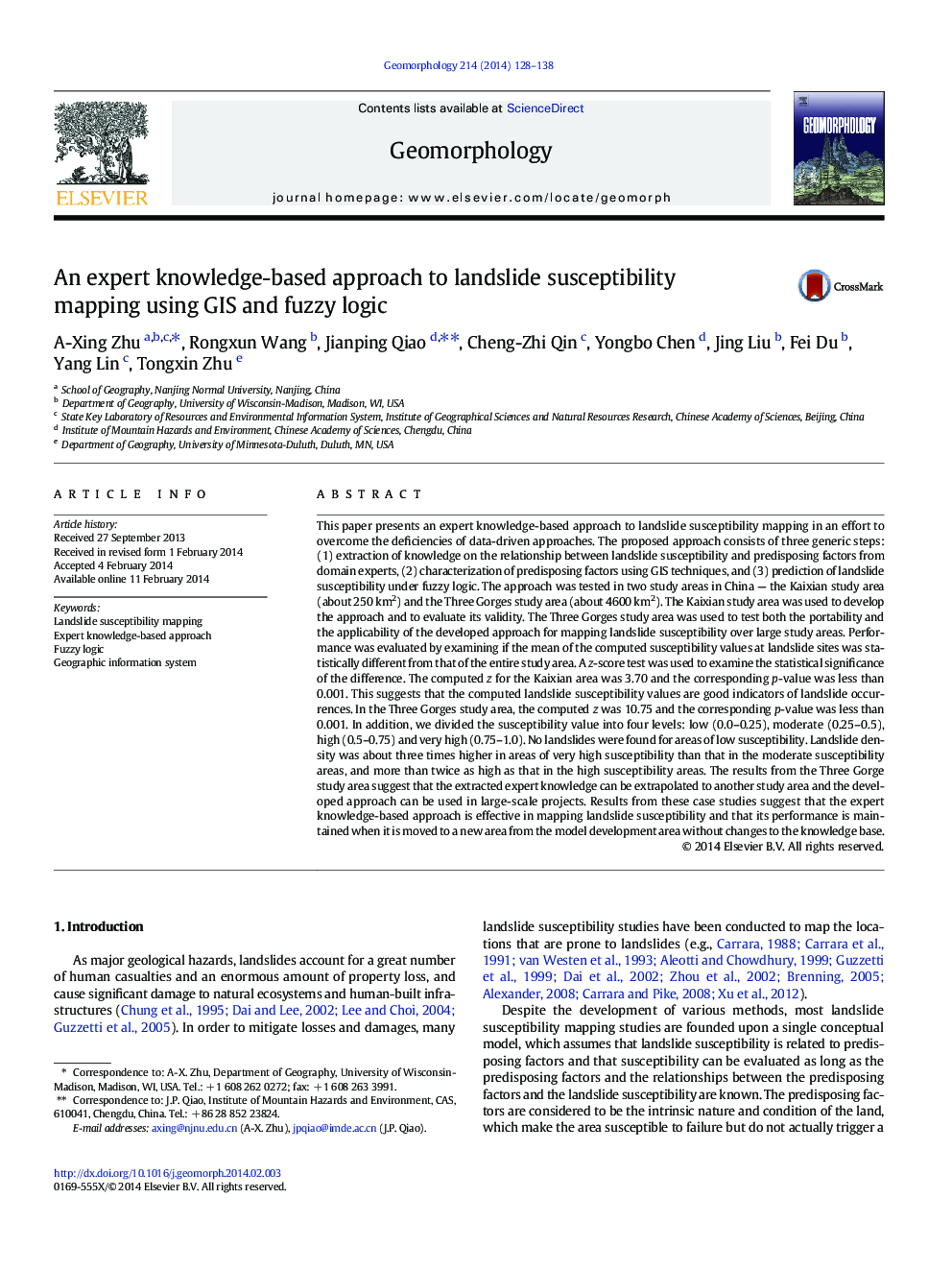| Article ID | Journal | Published Year | Pages | File Type |
|---|---|---|---|---|
| 6432539 | Geomorphology | 2014 | 11 Pages |
This paper presents an expert knowledge-based approach to landslide susceptibility mapping in an effort to overcome the deficiencies of data-driven approaches. The proposed approach consists of three generic steps: (1) extraction of knowledge on the relationship between landslide susceptibility and predisposing factors from domain experts, (2) characterization of predisposing factors using GIS techniques, and (3) prediction of landslide susceptibility under fuzzy logic. The approach was tested in two study areas in China - the Kaixian study area (about 250Â km2) and the Three Gorges study area (about 4600Â km2). The Kaixian study area was used to develop the approach and to evaluate its validity. The Three Gorges study area was used to test both the portability and the applicability of the developed approach for mapping landslide susceptibility over large study areas. Performance was evaluated by examining if the mean of the computed susceptibility values at landslide sites was statistically different from that of the entire study area. A z-score test was used to examine the statistical significance of the difference. The computed z for the Kaixian area was 3.70 and the corresponding p-value was less than 0.001. This suggests that the computed landslide susceptibility values are good indicators of landslide occurrences. In the Three Gorges study area, the computed z was 10.75 and the corresponding p-value was less than 0.001. In addition, we divided the susceptibility value into four levels: low (0.0-0.25), moderate (0.25-0.5), high (0.5-0.75) and very high (0.75-1.0). No landslides were found for areas of low susceptibility. Landslide density was about three times higher in areas of very high susceptibility than that in the moderate susceptibility areas, and more than twice as high as that in the high susceptibility areas. The results from the Three Gorge study area suggest that the extracted expert knowledge can be extrapolated to another study area and the developed approach can be used in large-scale projects. Results from these case studies suggest that the expert knowledge-based approach is effective in mapping landslide susceptibility and that its performance is maintained when it is moved to a new area from the model development area without changes to the knowledge base.
